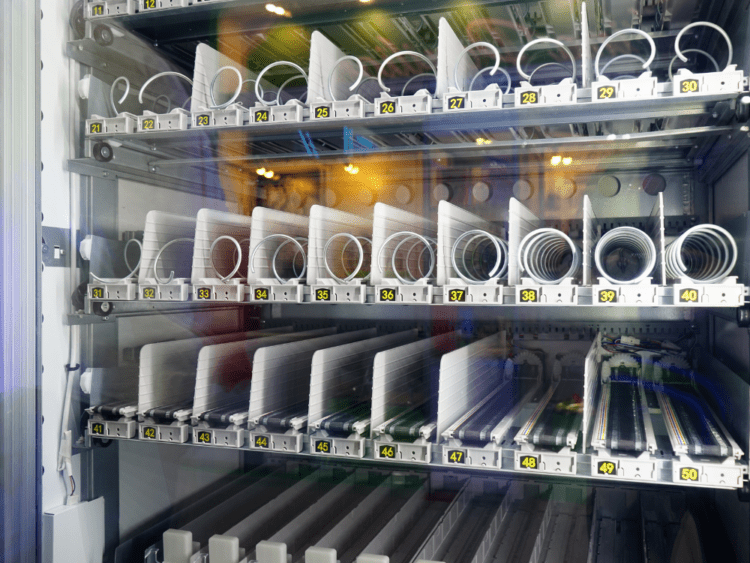Operator and User Safety in Vending Machines
by a.huynh |
In today’s fast-paced world, vending machines offer unparalleled convenience, making them a staple in workplaces, schools, and public areas. However, behind the ease of grabbing business supplies lies a crucial aspect that often goes unnoticed—safety. For vending machine operators, ensuring the safety of both the machines and their users is paramount. This blog post will explore the critical elements of operator and user safety in vending machines, offering insights and actionable advice for all operators keen on running safe and efficient vending operations.
The Importance Of Safety In Vending Machines
Safety in vending machines is not just a legal requirement but a moral obligation. Operators must provide a secure environment for users while protecting their investments. Safe operations minimise the risk of accidents and ensure smooth functionality, keeping customers satisfied and returning.
For operators, understanding safety’s pivotal role can prevent costly lawsuits and damage to brand reputation. Unsafe machines can lead to severe injuries, leading to expensive medical claims and potential legal fees. Prioritising safety is not an option but a necessity to maintain trust and reliability in the business.
Additionally, user safety boosts customer confidence. When users trust that they can safely interact with a vending machine, they are more likely to use it frequently, benefiting operators with increased sales. Therefore, ensuring safety is a win-win for both operators and customers.
Common Safety Concerns In Vending Machines
When discussing vending machine safety, it’s essential to address both physical and digital security. Physical safety concerns include risks of tipping, electrical faults, and mechanical failures, all of which can pose severe hazards to users. Operators must be vigilant in implementing measures to prevent such issues.
Digital security is equally crucial in today’s interconnected world. With vending machines becoming increasingly smart, they are vulnerable to cyber threats. Hackers can exploit these systems, leading to data breaches or service disruptions. Operators must ensure robust cybersecurity measures to protect both the machines and the data they handle.
Furthermore, user interaction can introduce unique safety challenges. Users can inadvertently cause accidents by misusing machines or tampering with components. Operators need to consider these potential issues and develop strategies to mitigate them effectively.
Best Practices For Operators To Ensure Safety
Operators should adopt a proactive approach to ensure machine safety and prevent accidents. Regular training sessions for staff can equip them with the knowledge and skills necessary to identify potential hazards and address them promptly.
Implementing clear and concise safety guidelines for users is another vital practice. Operators can display instructional signage on machines, informing users of proper usage and emergency procedures. This simple measure can significantly reduce the likelihood of accidents.
Routine inspections and maintenance are key to preventing safety issues before they arise. Operators should establish a maintenance schedule, checking for electrical or mechanical faults, loose parts, and other potential hazards. Proper documentation of these inspections is essential for accountability and record-keeping.
Emerging Technologies Enhancing Safety
Technology is rapidly advancing, and the vending machine industry is no exception. Emerging technologies are playing a significant role in enhancing safety for both users and operators. Smart sensors, for instance, can detect potential hazards such as overheating or tilting and send alerts to operators for immediate action.
Cashless payment systems are another technological advancement that improves safety. By eliminating the need for cash handling, operators reduce the risk of theft and vandalism. Additionally, these systems streamline transactions, enhancing user convenience and safety.
Remote monitoring technology provides operators with real-time machine status updates. This technology enables operators to detect and address issues promptly, ensuring machines remain safe and functional. Incorporating these emerging technologies can significantly enhance the overall safety of vending operations.
The Role Of Regular Maintenance And Inspection
Regular maintenance and inspection are essential components of a comprehensive safety strategy. By adhering to a maintenance schedule, operators can identify and rectify potential issues before they escalate into major problems. This proactive approach not only ensures safety but also prolongs the lifespan of machines.
Operators should pay close attention to electrical components during inspections. Faulty wiring or connections can pose significant safety hazards, leading to electrical fires or shocks. Routine checks can identify these issues, allowing for timely repairs and replacements.
Mechanical components also require careful scrutiny. Loose parts or worn-out mechanisms can lead to malfunctions, potentially causing user injuries. Regular inspections enable operators to identify and address these mechanical issues promptly, ensuring the machines operate smoothly and safely.
Contact Us
At Tooling Intelligence, we offer a comprehensive range of point-of-use vending solutions for various industrial applications.





